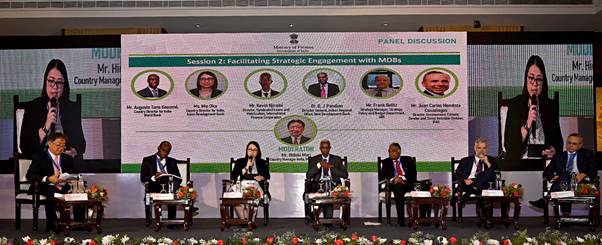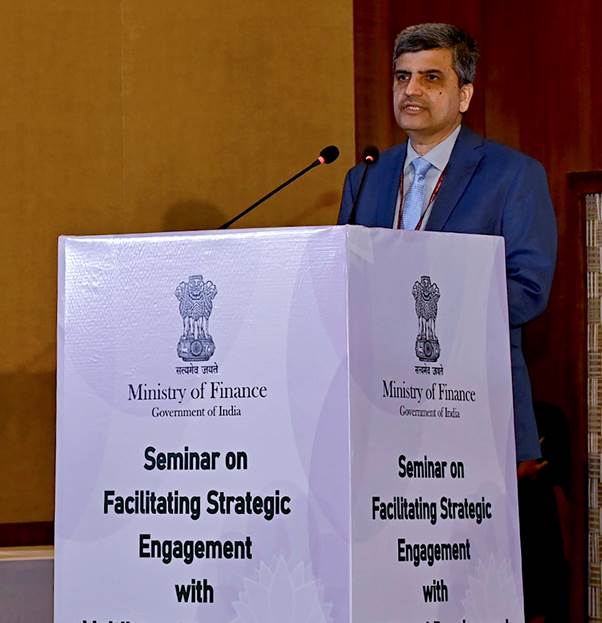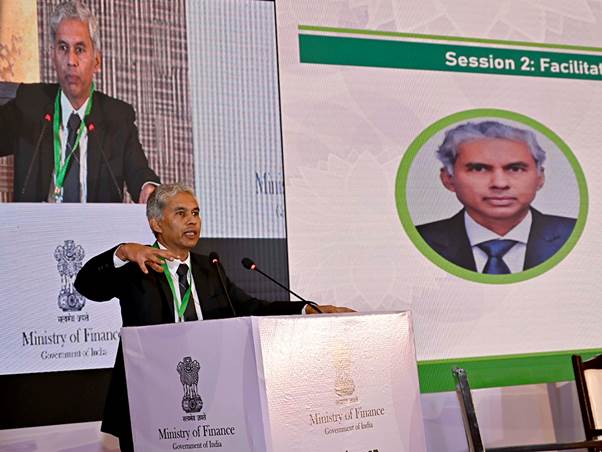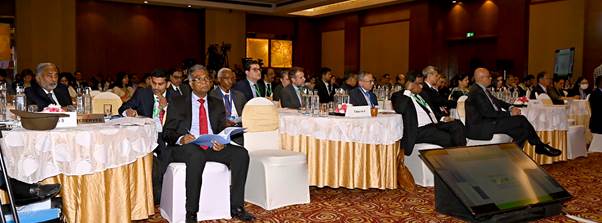
The Department of Economic Affairs, Ministry of Finance, organised a seminar on ‘Facilitating Strategic Engagement with Multilateral Development Banks (MDBs) for a Future-Ready India’ in New Delhi, today. The seminar was organised to reemphasise the commitment of various stakeholders to the vision of Viksit Bharat 2047 by reflecting on how to deepen India’s engagement with MDBs for maximum transformative impact. The seminar saw participation of more than 200 participants from the Government of India, all State Governments, all MDBs in operation in India and major private sector partners.

Shri Ajay Seth, Secretary, Department of Economic Affairs, Ministry of Finance, set the tone for the discussion with his keynote address which shared the vision of a ‘Future Ready India’ – an India that is empowered, inclusive and enables every Indian to reach their true potential. Sri Seth further highlighted the importance of MDBs’ transformation towards a Better, Bigger and Bolder system, which was endorsed by the G20 community under India’s G20 Presidency in 2023. This would enable the MDBs’ to effectively respond to the complex and diverse demands of emerging economies like India in an increasingly complex world.

Other key note speakers were Shri Anurag Jain, Secretary, Ministry of Road, Transport and Highways (MoRTH); Shri Rajesh Kumar Singh, Secretary, Department for Promotion of Industry and Internal Trade (DPIIT) and Shri B.V.R. Subrahmanyam, CEO, NITI Aayog.
The keynote speakers noted the need to further build up on the sectoral developmental priorities and elaborate the present level of preparedness and the gaps for MDBs and other stakeholders to pitch in.

In his keynote address, Shri K.V. Kamath, Chairman, National Bank for Financing Infrastructure and Development (NaBFID) highlighted the perspective of specialised institutions aimed at promoting infrastructure development in India.
The seminar was organised in three distinct sessions to allowed participants to learn together from the expertise of different stakeholders while charting an actionable roadmap to help achieve the vision of a future-ready India.
Earlier, Ms. Manisha Sinha, Additional Secretary, DEA, elaborated in detail the roadmap for engagement of stakeholders through a presentation. This presentation highlighted the strengths, opportunities, and challenges of Externally Aided Projects (EAPs) in India and elucidated the expectations of India from the MDBs by focusing on finance plus and budget plus elements, innovations in financing and leveraging, greater engagement with private sector, focus on transference of global practices and creating synergies.
The sessions included focussed discussions on Facilitating Strategic Engagement with MDBs, Exploring Collaborative Models of Development Financing and Leveraging Emerging Technologies for Transformative Development. The discussions, with panellists from MDBs, Central Line Ministries, State Governments and the private sector facilitated knowledge-sharing and cross-learning among the partners and helped chart a pathway for future strategic engagement and transformative impact. The discussion primarily focussed on key finance-plus and budget-plus elements in the forthcoming projects of MDBs, sharing of domestic and international best practices, adoption of synergetic and integrated platforms for development cooperation, opportunities and challenges offered by new age technologies and the role of MDBs in facilitating the uptake of such technologies for achieving developmental priorities of India.
The final session facilitated a business interaction among technical experts from MDBs and public and private sector entities of India to explore areas of greater engagement, including investment and procurement opportunities.

During the seminar, the key points of focus included the urgent need of speeding up MDB’s operational processes and enhancing its role in areas of credit enhancement and risk management to leverage greater private capital. The importance of technology transfer and engaged international discourses on the idea of ‘public goods’ especially in ensuring access to emerging and cutting-edge technologies and best practises. Participants and speakers expressed their optimism and hope for a strategic engagement with the MDBs facilitating India’s journey of a future ready nation in the Amrit Kaal.
****
NB/VM/KMN

